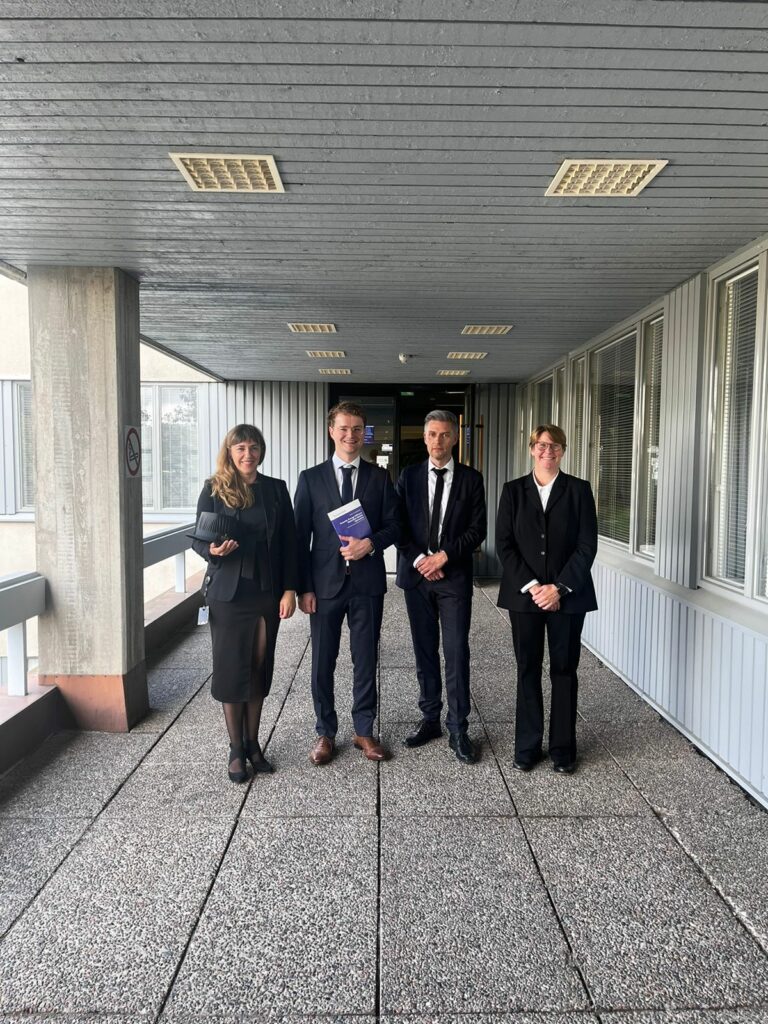In a groundbreaking achievement, David Fassbender has become the first early stage researcher to successfully defend his PhD in the MORE project. We held a short interview with David to find out more on his project, his time as an early stage researcher and plans for the future. We would like to congratulate David and wish him all the best.
What has your research project focused on and what are your key results and innovations coming from your research project?
The focus in my project was on finding ways for improving the energy efficiency of heavy-duty mobile machines, which is currently very low on average. However, my goal was to keep also aspects such as cost effectiveness and feasibility in mind in order to come up with concepts that can be compatible on the market today.
What impact does your research project and your outcomes have?
On the one hand, I’m optimistic that my findings will change to a certain extend how researchers in academia approach the task of finding more efficient concepts – considering also costs and feasibility. On the other hand, I hope that my research points out to OEMs how they can electrify their machines in a more efficient manner, reducing emissions and costs.
What were your personal highlights over the course of your research project?
My highlights definitely involved the conferences and MORE workshops that I could attend in various countries, but definitely also my defence at which I could present all my accomplishments, discuss them, and feel appreciated for them.
Are there any elements of the training you received that you find should be integrated in local doctoral programmes?
I think I benefited a lot from the exchange at numerous international events that I was able to attend and from the exchange with network partners that work in different but related fields (automation, in my case). If possible, local doctoral researchers should be encouraged and supported as well in visiting conferences frequently and exchanging also with researchers from neighboring fields.
How did the MORE network impact your doctoral experience?
The network and the frequent meetings were great for receiving input and feedback of high quality and from very different perspectives, which would have been hard to obtain otherwise. Furthermore, the social bonds between us ESRs grew very strong, and I’m sure they will remain far beyond the time of our doctoral studies.
What are your plans for the future?
In March, I already started my follow-up position at Bosch Rexroth in Elchingen. With a good mix of follow-up and new tasks as well as great colleagues around, I’m very optimistic that I can have an impact on the future of the heavy-duty mobile machine industry while further developing myself and supporting the company.
